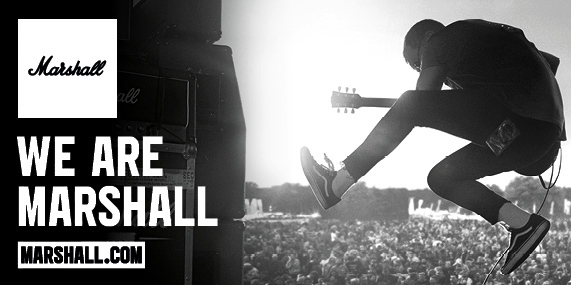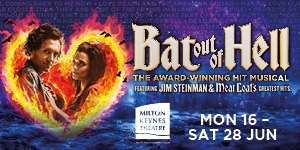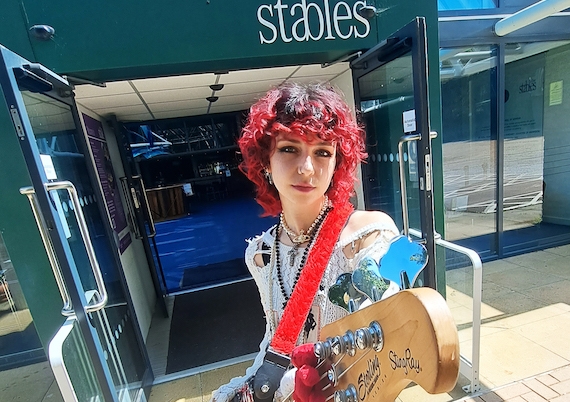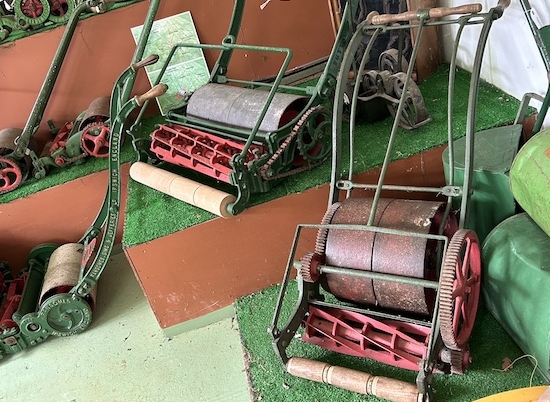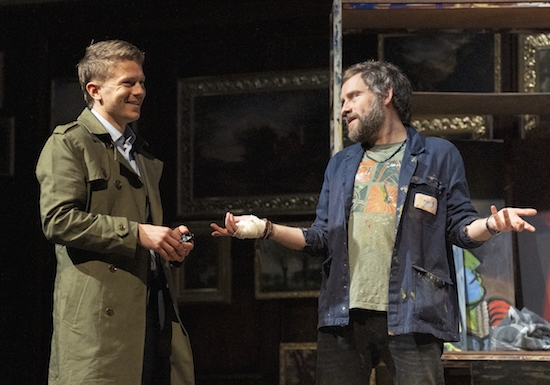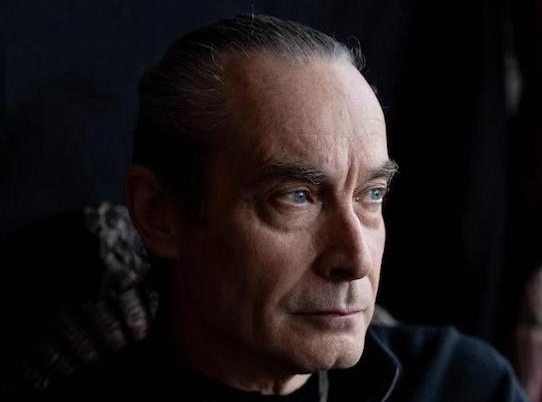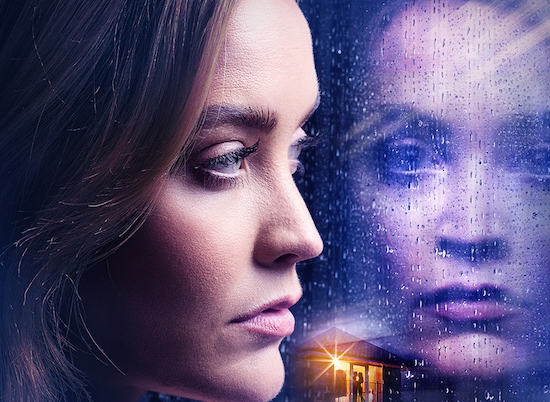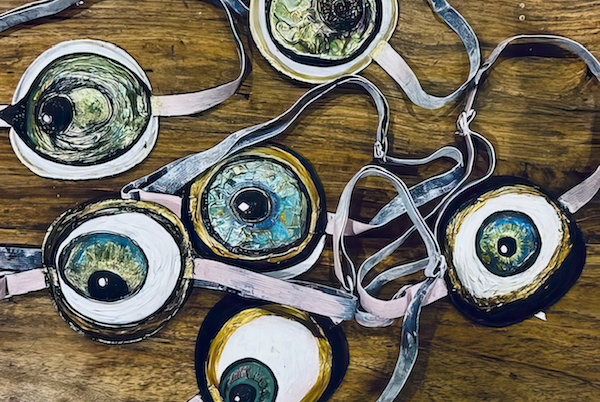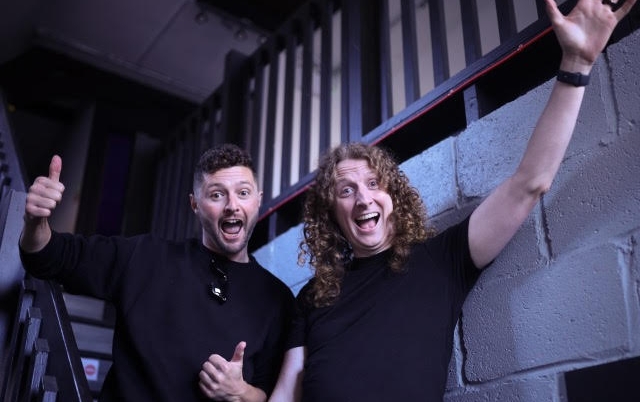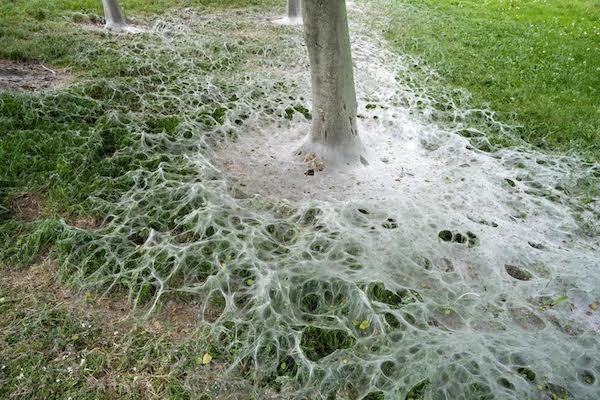DYLAN HOWE'S SUBTERRANEANS - LIVE AT THE STABLES 02/10/14
Everyone has their own Bowie. For some it's the glam lewdness of the Ziggy Stardust years; for others it's the slick soul-funk sheen of his Eighties work. Sandwiched in between transitory phases was Bowie's well-documented Berlin period in the Seventies, a period where he and his good friend Iggy Pop fled to the post-war Schöneberg district of the city to kick drugs and kickstart their respective careers.
In Berlin Bowie wrote three seminal albums - 'Low', '"Heroes"' (both 1977) and 'Lodger' (1979) - worked with Roxy Music synth-playing émigré Brian Eno, King Crimson guitarist Robert Fripp and hung out with the guys from Kraftwerk. The result was some of Bowie's most understated but adventurous songwriting.
The enduring appeal of Bowie's Berlin period lies mostly in the downbeat, bleak, self-reflective tone of the first two of those three albums; the shift from the lurid Ziggy period to the more mature, worn-out delivery of his mid-Seventies work was astonishing. Even '"Heroes"', the big euphoric hit from the second of his Berlin albums, sounded somewhat strained. It would be no surprise that Joy Division, that most dour of Manchester post-punks, would cite Bowie's 'Low' as a major influence, initially naming themselves Warsaw after a track on that album.
 The other distinctive element of these albums was the use of electronics. In equal parts down to Eno's mastery of synths and Bowie's ever-questing spirit, half of 'Low' was turned over to instrumental passages that felt more like a noirish European film score than a rock album, and it's influence over the direction of electronic music in the coming decades was easily identified, even if it was the look and feel of Bowie's glam period that would influence the New Romantic movement most strikingly.
Celebrated drummer Dylan Howe's album of jazz versions of songs from 'Low' and '"Heroes"' (titled 'Subterranean' after the song of the same name on 'Low') is the latest attempt to re-cast these songs in the context of a different genre. In the Nineties the New York minimalist composer Philip Glass isolated the icy chill of these songs with classical versions of tracks from the Berlin period, while in 2013 all-analogue British synth outfit Metamono released a throbbing version of 'Warszawa'; both projects highlighted the underlying mood and essence of the songs, and in many ways delivered what Bowie and Eno were trying to accomplish just with more economical means back in the Seventies. Howe has done exactly the same, albeit from within a jazz setting.
Howe and his group bring a natural, relaxed fluidity to these songs. Under Howe's stewardship, traditional jazz phrasing - cyclical drumming and percussion, serpentine piano passages, evocative sax lines - are combined with electronics, wailing synths and ambient sounds to evoke the atmospheres of the original tracks but in a wholly different context. Like many jazz versions of other people's songs, the conceit here lies in taking the essence of the original piece of music and then riffing on that, stretching out sections, extending and developing melodic passages and producing something that's inherently derived from the original piece of music but which is wholly other. That approach was best showcased tonight by their takes on 'All Saints' and 'Some Are', both of which saw tenor and soprano saxophonist Andy Sheppard delivering the main melody before he and the other musicians - Howe on drums, Percy Pursglove on bass, Steve Lodder on synths, Ross Stanley on piano - took it in turns to rip the track apart with skillful dexterity, moulding the notes into something entirely different, before Sheppard, guided by Howe, gently brought the original melody back into focus.
The other distinctive element of these albums was the use of electronics. In equal parts down to Eno's mastery of synths and Bowie's ever-questing spirit, half of 'Low' was turned over to instrumental passages that felt more like a noirish European film score than a rock album, and it's influence over the direction of electronic music in the coming decades was easily identified, even if it was the look and feel of Bowie's glam period that would influence the New Romantic movement most strikingly.
Celebrated drummer Dylan Howe's album of jazz versions of songs from 'Low' and '"Heroes"' (titled 'Subterranean' after the song of the same name on 'Low') is the latest attempt to re-cast these songs in the context of a different genre. In the Nineties the New York minimalist composer Philip Glass isolated the icy chill of these songs with classical versions of tracks from the Berlin period, while in 2013 all-analogue British synth outfit Metamono released a throbbing version of 'Warszawa'; both projects highlighted the underlying mood and essence of the songs, and in many ways delivered what Bowie and Eno were trying to accomplish just with more economical means back in the Seventies. Howe has done exactly the same, albeit from within a jazz setting.
Howe and his group bring a natural, relaxed fluidity to these songs. Under Howe's stewardship, traditional jazz phrasing - cyclical drumming and percussion, serpentine piano passages, evocative sax lines - are combined with electronics, wailing synths and ambient sounds to evoke the atmospheres of the original tracks but in a wholly different context. Like many jazz versions of other people's songs, the conceit here lies in taking the essence of the original piece of music and then riffing on that, stretching out sections, extending and developing melodic passages and producing something that's inherently derived from the original piece of music but which is wholly other. That approach was best showcased tonight by their takes on 'All Saints' and 'Some Are', both of which saw tenor and soprano saxophonist Andy Sheppard delivering the main melody before he and the other musicians - Howe on drums, Percy Pursglove on bass, Steve Lodder on synths, Ross Stanley on piano - took it in turns to rip the track apart with skillful dexterity, moulding the notes into something entirely different, before Sheppard, guided by Howe, gently brought the original melody back into focus.
 'Art Decade' was delivered with a smooth, almost cinematic vibe while 'Warszawa' began under a shroud of ominous dread before rapidly evolving into a hard bop number of furious white-hot intensity. Bowie himself played naive sax on 'Low' but this was like a foul-mouthed distant descendant of the original track's stately formalism. Here the track provided the perfect vehicle for the rapid twists and turns this quintet are capable of, shifting effortlessly in different directions while keeping their combined cacophonous sound firmly in check. 'Weeping Wall' was nothing short of epic, at one point featuring a lengthy standoff between Stanley and Howe that felt like a test of who was going to blink first, both musicians smiling at one another even as they challenged one another to keep up.
The set was backed by a film of Berlin from the Seventies, providing a counterpoint to the music through shots of neon nightlife, preposterously inventive architecture and of course the wall that brutally divided east from west. The film served to highlight the melting pot of cultures, military and economic tension and social inequality that provided the backdrop to Bowie's writing of the albums, which in turn inspired Howe's masterful re-imagining of the songs; sound and vision, as Bowie himself put it on 'Low'.
Words: Mat Smith
'Art Decade' was delivered with a smooth, almost cinematic vibe while 'Warszawa' began under a shroud of ominous dread before rapidly evolving into a hard bop number of furious white-hot intensity. Bowie himself played naive sax on 'Low' but this was like a foul-mouthed distant descendant of the original track's stately formalism. Here the track provided the perfect vehicle for the rapid twists and turns this quintet are capable of, shifting effortlessly in different directions while keeping their combined cacophonous sound firmly in check. 'Weeping Wall' was nothing short of epic, at one point featuring a lengthy standoff between Stanley and Howe that felt like a test of who was going to blink first, both musicians smiling at one another even as they challenged one another to keep up.
The set was backed by a film of Berlin from the Seventies, providing a counterpoint to the music through shots of neon nightlife, preposterously inventive architecture and of course the wall that brutally divided east from west. The film served to highlight the melting pot of cultures, military and economic tension and social inequality that provided the backdrop to Bowie's writing of the albums, which in turn inspired Howe's masterful re-imagining of the songs; sound and vision, as Bowie himself put it on 'Low'.
Words: Mat Smith
 The other distinctive element of these albums was the use of electronics. In equal parts down to Eno's mastery of synths and Bowie's ever-questing spirit, half of 'Low' was turned over to instrumental passages that felt more like a noirish European film score than a rock album, and it's influence over the direction of electronic music in the coming decades was easily identified, even if it was the look and feel of Bowie's glam period that would influence the New Romantic movement most strikingly.
Celebrated drummer Dylan Howe's album of jazz versions of songs from 'Low' and '"Heroes"' (titled 'Subterranean' after the song of the same name on 'Low') is the latest attempt to re-cast these songs in the context of a different genre. In the Nineties the New York minimalist composer Philip Glass isolated the icy chill of these songs with classical versions of tracks from the Berlin period, while in 2013 all-analogue British synth outfit Metamono released a throbbing version of 'Warszawa'; both projects highlighted the underlying mood and essence of the songs, and in many ways delivered what Bowie and Eno were trying to accomplish just with more economical means back in the Seventies. Howe has done exactly the same, albeit from within a jazz setting.
Howe and his group bring a natural, relaxed fluidity to these songs. Under Howe's stewardship, traditional jazz phrasing - cyclical drumming and percussion, serpentine piano passages, evocative sax lines - are combined with electronics, wailing synths and ambient sounds to evoke the atmospheres of the original tracks but in a wholly different context. Like many jazz versions of other people's songs, the conceit here lies in taking the essence of the original piece of music and then riffing on that, stretching out sections, extending and developing melodic passages and producing something that's inherently derived from the original piece of music but which is wholly other. That approach was best showcased tonight by their takes on 'All Saints' and 'Some Are', both of which saw tenor and soprano saxophonist Andy Sheppard delivering the main melody before he and the other musicians - Howe on drums, Percy Pursglove on bass, Steve Lodder on synths, Ross Stanley on piano - took it in turns to rip the track apart with skillful dexterity, moulding the notes into something entirely different, before Sheppard, guided by Howe, gently brought the original melody back into focus.
The other distinctive element of these albums was the use of electronics. In equal parts down to Eno's mastery of synths and Bowie's ever-questing spirit, half of 'Low' was turned over to instrumental passages that felt more like a noirish European film score than a rock album, and it's influence over the direction of electronic music in the coming decades was easily identified, even if it was the look and feel of Bowie's glam period that would influence the New Romantic movement most strikingly.
Celebrated drummer Dylan Howe's album of jazz versions of songs from 'Low' and '"Heroes"' (titled 'Subterranean' after the song of the same name on 'Low') is the latest attempt to re-cast these songs in the context of a different genre. In the Nineties the New York minimalist composer Philip Glass isolated the icy chill of these songs with classical versions of tracks from the Berlin period, while in 2013 all-analogue British synth outfit Metamono released a throbbing version of 'Warszawa'; both projects highlighted the underlying mood and essence of the songs, and in many ways delivered what Bowie and Eno were trying to accomplish just with more economical means back in the Seventies. Howe has done exactly the same, albeit from within a jazz setting.
Howe and his group bring a natural, relaxed fluidity to these songs. Under Howe's stewardship, traditional jazz phrasing - cyclical drumming and percussion, serpentine piano passages, evocative sax lines - are combined with electronics, wailing synths and ambient sounds to evoke the atmospheres of the original tracks but in a wholly different context. Like many jazz versions of other people's songs, the conceit here lies in taking the essence of the original piece of music and then riffing on that, stretching out sections, extending and developing melodic passages and producing something that's inherently derived from the original piece of music but which is wholly other. That approach was best showcased tonight by their takes on 'All Saints' and 'Some Are', both of which saw tenor and soprano saxophonist Andy Sheppard delivering the main melody before he and the other musicians - Howe on drums, Percy Pursglove on bass, Steve Lodder on synths, Ross Stanley on piano - took it in turns to rip the track apart with skillful dexterity, moulding the notes into something entirely different, before Sheppard, guided by Howe, gently brought the original melody back into focus.
 'Art Decade' was delivered with a smooth, almost cinematic vibe while 'Warszawa' began under a shroud of ominous dread before rapidly evolving into a hard bop number of furious white-hot intensity. Bowie himself played naive sax on 'Low' but this was like a foul-mouthed distant descendant of the original track's stately formalism. Here the track provided the perfect vehicle for the rapid twists and turns this quintet are capable of, shifting effortlessly in different directions while keeping their combined cacophonous sound firmly in check. 'Weeping Wall' was nothing short of epic, at one point featuring a lengthy standoff between Stanley and Howe that felt like a test of who was going to blink first, both musicians smiling at one another even as they challenged one another to keep up.
The set was backed by a film of Berlin from the Seventies, providing a counterpoint to the music through shots of neon nightlife, preposterously inventive architecture and of course the wall that brutally divided east from west. The film served to highlight the melting pot of cultures, military and economic tension and social inequality that provided the backdrop to Bowie's writing of the albums, which in turn inspired Howe's masterful re-imagining of the songs; sound and vision, as Bowie himself put it on 'Low'.
Words: Mat Smith
'Art Decade' was delivered with a smooth, almost cinematic vibe while 'Warszawa' began under a shroud of ominous dread before rapidly evolving into a hard bop number of furious white-hot intensity. Bowie himself played naive sax on 'Low' but this was like a foul-mouthed distant descendant of the original track's stately formalism. Here the track provided the perfect vehicle for the rapid twists and turns this quintet are capable of, shifting effortlessly in different directions while keeping their combined cacophonous sound firmly in check. 'Weeping Wall' was nothing short of epic, at one point featuring a lengthy standoff between Stanley and Howe that felt like a test of who was going to blink first, both musicians smiling at one another even as they challenged one another to keep up.
The set was backed by a film of Berlin from the Seventies, providing a counterpoint to the music through shots of neon nightlife, preposterously inventive architecture and of course the wall that brutally divided east from west. The film served to highlight the melting pot of cultures, military and economic tension and social inequality that provided the backdrop to Bowie's writing of the albums, which in turn inspired Howe's masterful re-imagining of the songs; sound and vision, as Bowie himself put it on 'Low'.
Words: Mat Smith
